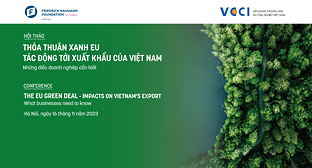Vietnam warns PH cement safeguard ‘violates’ WTO
12/06/2019 12:00

Vietnam, the largest cement exporter to the Philippines, has warned that the imposition of safeguard duty on imported cement is “inconsistent” with the WTO agreements.
In a statement submitted to the Tariff Commission (TC), Commercial Counselor Vu Viet Nga of the Vietnam Embassy in Manila, expressed deep concerns on the negative impact the safeguard duty may bring on Vietnam’s cement industry.
The Department of Trade and Industry (DTI) imposed a provisional P8.40 safeguard duty per 40-kilogram bag of imported cement in February this year on grounds that there has been a surge in imports causing serious injury to the local cement manufacturers.
The TC is currently investigating whether or not there is indeed a surge in imports and an ensuing serious injury to the local industry. Once the TC makes an affirmative decision, the safeguard duty becomes permanent.
When that happens, Vietnam said it will adversely affect its domestic cement industry.
Vietnam, however, said that the Philippines’ safeguard duty is not consistent with the WTO rules. It cited the Report of the Appellate Body of WTO on Indonesia’s safeguard on certain iron or steel products (or DS496) which states that unbound products shall not be subject of any safeguard measure.
Irrespective of its legal characterization as a safeguard, it is inconsistent with the Most Favored Nation (MFN) obligation under Article I:1 of the General Agreement on Tariffs and Trade (GATT) 1994.
As a result, it said that Indonesia has already stopped the measure applied to unbound product to bring its policy into conformity with the WTO law.
Vietnam further quoted that DTI also confirmed that “based on the WTO Philippine Tariff Concession (Schedule LXXV), the product under consideration (cement) is unbound and is not the subject of any tariff concession under the WTO Agreement.” At present, cement has zero duty for both MFN and ASEAN Trade in Goods Agreement.
“In this aspect and the outcome of DS496, Vietnam is of the view that it will be inconsistent with WTO rules if any safeguard measure is applied to imported cement,” said Vietnam’s commercial counselor.
In addition, Vietnam emphasized that the imposition of the safeguard duty on imported cement was initiated by the DTI and not based on any formal petition coming from the supposedly affected domestic industry.
With that, Vietnam said they are “highly concerned about the completeness and the reliability of evidences collected and submitted to competent authority of the Philippines.”
In that context, Vietnam has requested that the Commission assure the “completeness, the adequacy and accuracy of data and information” to be used during the investigation process.
In addition, Vietnam said they are of the view that the “Philippines’ public interest and consumers may also suffer” due to potential shortage of cement supply situation should a permanent safeguard duty is imposed
on imported cement.
In conclusion, Vietnam urged the Commission to seriously consider their views and arguments and terminate the investigation.
Data showed that Vietnam accounted for the largest share of the country’s imported cement during the period of investigation with 78 percent share or 7.6 million metric tons out of total 9.773 MMT imports for the period 2013-2018.
China cement contributed 15.78 percent or 1.542 MMT while Thailand accounted for 4.39 percent at 429,478 MT and Indonesia’s share was 1.31 percent at 128,083 MT.
In a statement submitted to the Tariff Commission (TC), Commercial Counselor Vu Viet Nga of the Vietnam Embassy in Manila, expressed deep concerns on the negative impact the safeguard duty may bring on Vietnam’s cement industry.
The Department of Trade and Industry (DTI) imposed a provisional P8.40 safeguard duty per 40-kilogram bag of imported cement in February this year on grounds that there has been a surge in imports causing serious injury to the local cement manufacturers.
The TC is currently investigating whether or not there is indeed a surge in imports and an ensuing serious injury to the local industry. Once the TC makes an affirmative decision, the safeguard duty becomes permanent.
When that happens, Vietnam said it will adversely affect its domestic cement industry.
Vietnam, however, said that the Philippines’ safeguard duty is not consistent with the WTO rules. It cited the Report of the Appellate Body of WTO on Indonesia’s safeguard on certain iron or steel products (or DS496) which states that unbound products shall not be subject of any safeguard measure.
Irrespective of its legal characterization as a safeguard, it is inconsistent with the Most Favored Nation (MFN) obligation under Article I:1 of the General Agreement on Tariffs and Trade (GATT) 1994.
As a result, it said that Indonesia has already stopped the measure applied to unbound product to bring its policy into conformity with the WTO law.
Vietnam further quoted that DTI also confirmed that “based on the WTO Philippine Tariff Concession (Schedule LXXV), the product under consideration (cement) is unbound and is not the subject of any tariff concession under the WTO Agreement.” At present, cement has zero duty for both MFN and ASEAN Trade in Goods Agreement.
“In this aspect and the outcome of DS496, Vietnam is of the view that it will be inconsistent with WTO rules if any safeguard measure is applied to imported cement,” said Vietnam’s commercial counselor.
In addition, Vietnam emphasized that the imposition of the safeguard duty on imported cement was initiated by the DTI and not based on any formal petition coming from the supposedly affected domestic industry.
With that, Vietnam said they are “highly concerned about the completeness and the reliability of evidences collected and submitted to competent authority of the Philippines.”
In that context, Vietnam has requested that the Commission assure the “completeness, the adequacy and accuracy of data and information” to be used during the investigation process.
In addition, Vietnam said they are of the view that the “Philippines’ public interest and consumers may also suffer” due to potential shortage of cement supply situation should a permanent safeguard duty is imposed
on imported cement.
In conclusion, Vietnam urged the Commission to seriously consider their views and arguments and terminate the investigation.
Data showed that Vietnam accounted for the largest share of the country’s imported cement during the period of investigation with 78 percent share or 7.6 million metric tons out of total 9.773 MMT imports for the period 2013-2018.
China cement contributed 15.78 percent or 1.542 MMT while Thailand accounted for 4.39 percent at 429,478 MT and Indonesia’s share was 1.31 percent at 128,083 MT.
June 10, 2019
Source: Manila Bulletin
Source: Manila Bulletin
Các tin khác
- Textile and garment exports recovered positively (19/04/2024)
- Foreign steel imported en masse, manufacturers call for protection (19/04/2024)
- US targets Chinese steel with 'overcapacity' fallacy amid escalating trade tensions; move casts great uncertainty on stabilizing bilateral ties (19/04/2024)
- Thailand is considering implementing protective tariffs on imports from China (19/04/2024)
- Fruit and vegetable exports to RoK and Thailand surge (19/04/2024)
 Home
Home
 About Us
About Us




















